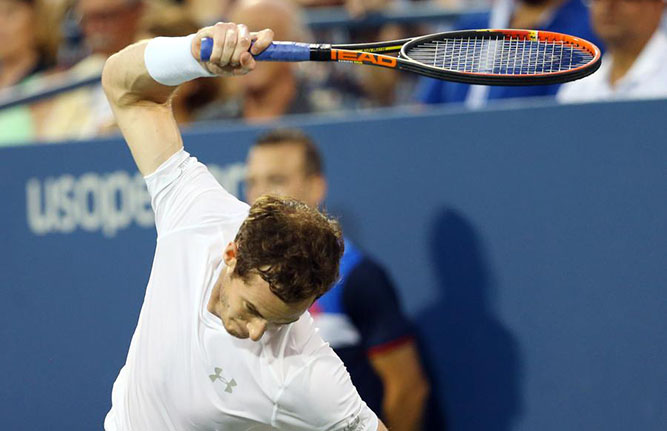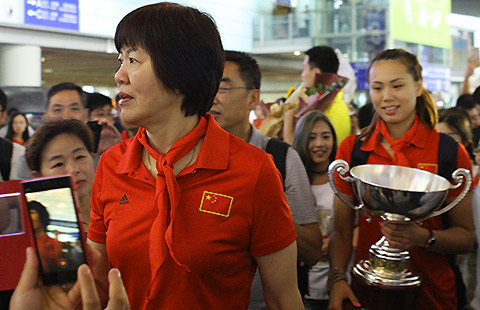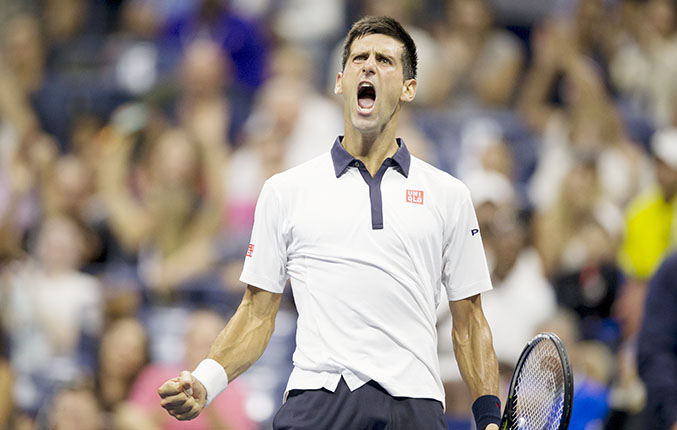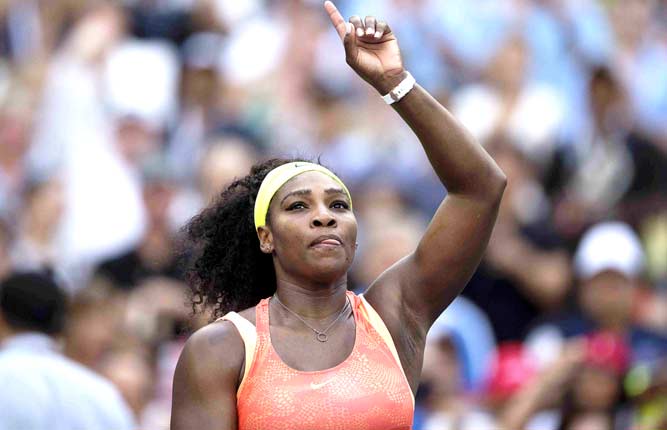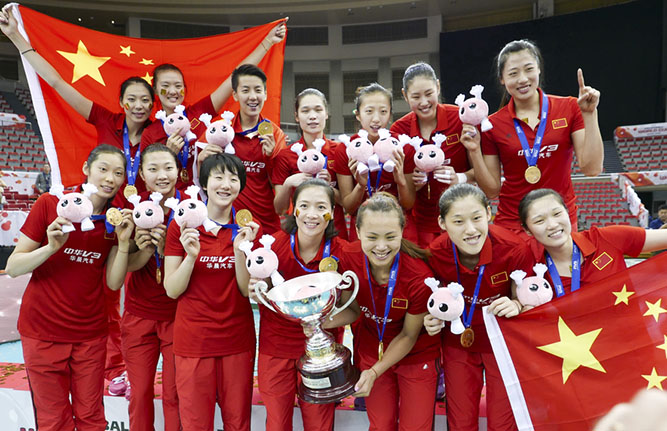Sports industry racing to open up
By Sun Xiaochen (China Daily) Updated: 2015-07-10 07:03
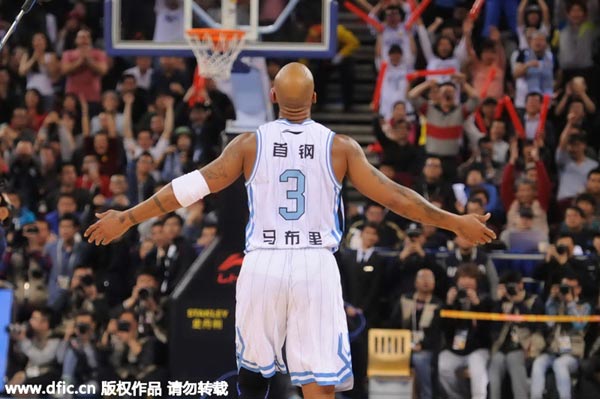 |
|
Stephon Marbury of Beijing Ducks reacts during the fifth round of match in the best-of-seven finals of the CBA league in Beijing, March 19, 2015. CBA has attracted more and more fans to watch high-level basketball matches over recent years. [Photo/IC] |
Untapped gold mine
Although China's sports industry has recently grown by leaps and bounds, it remains underdeveloped compared with global powers such as the United States. Most of the sector's added value is generated by traditional manufacturers of sporting goods and athletic equipment.
"As far as I know, at least 80 percent of the sports industry's current output comes from the manufacturing sector, while less than 20 percent results from the consumption of intangible products and services. The proportion of the latter lags far behind the amount in the US," said Yao, who played in the NBA from 2002 to 2011.
According to research by Lin Xianpeng, a sports industry expert at Beijing Sport University, the annual value of the US sports industry reached $450 billion in 2013, accounting for more than 3 percent of GDP.
"More than 70 percent of the value in the US was generated by competition-related activities, including venue operations, player endorsements and sales of broadcasting rights. Compared with the US, we have a huge gold mine with an immense number of potential business opportunities that have yet to be exploited," he said.
Zhang Qing, founder of the sports marketing agency Key-Sports, said the decision to free up the market means the country's sports entertainment industry is expected to soar.
"China's rapid economic growth has driven up living standards and disposable incomes, particularly in large metropolitan centers such as Beijing, Shanghai and Guangzhou, where the sector is thriving as local professional sports clubs are becoming more popular," Zhang said.
In 2013, average per capita spending on sports was only 645 yuan, just 3.5 percent of average per capita disposable income. The percentage is far less than in the US, suggesting that the market potential is huge.
In the past five decades, Chinese sports have been State-run, and largely built around the planned economy, so the government owns and oversees the operation of all sporting events and leagues. Given the number of gold medals China has won at global events, the strengths of the system are evident, but the long relationship between the State and sports also presents difficulties, making it harder for the free market to develop and for a fully fledged sports industry to take root, Zhang said.
